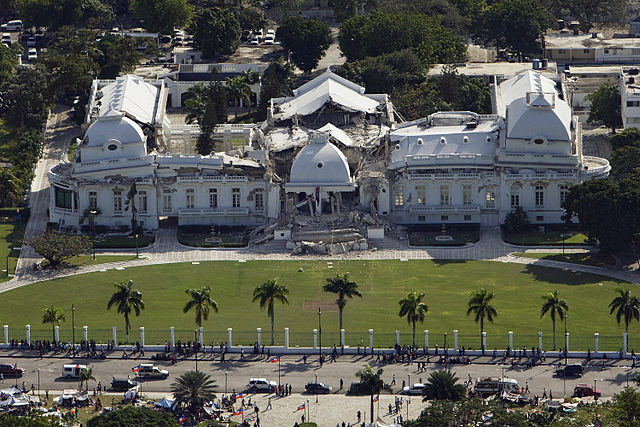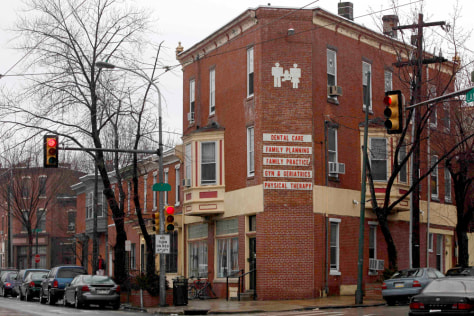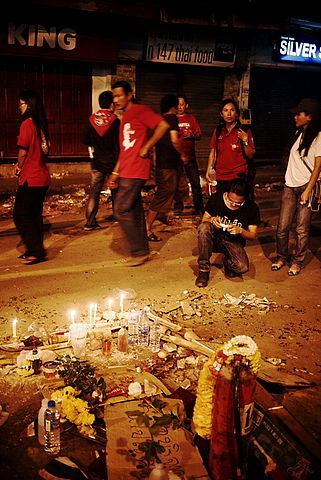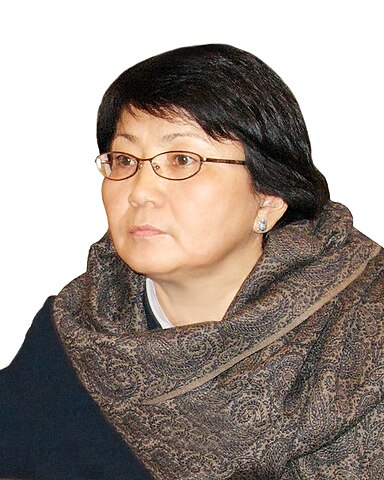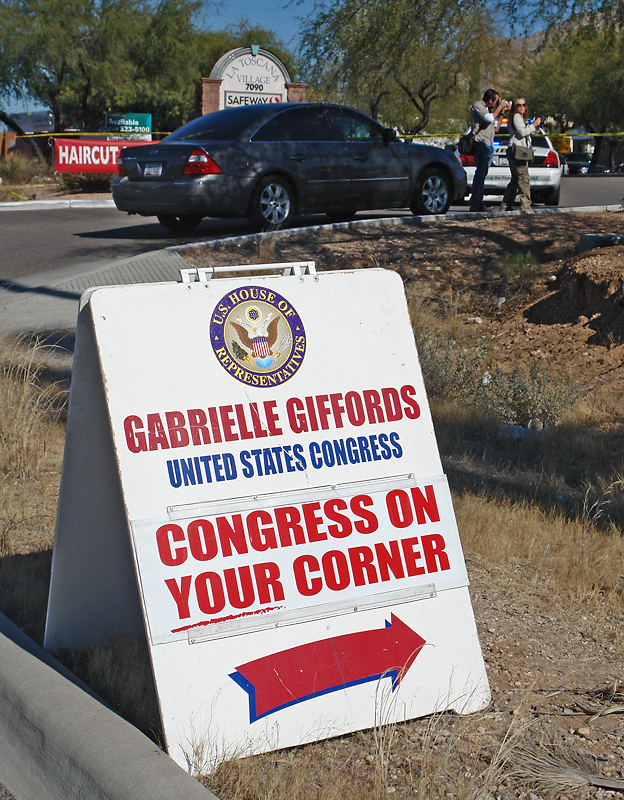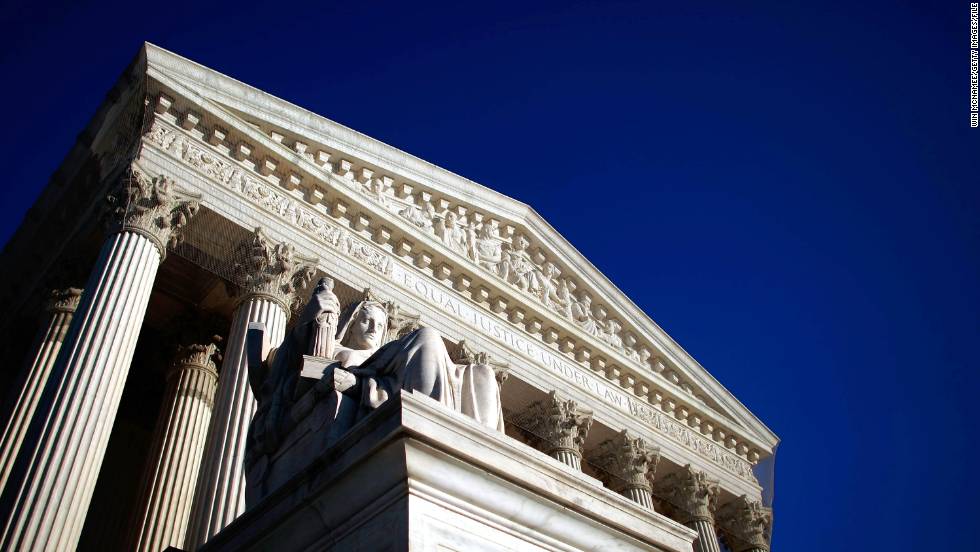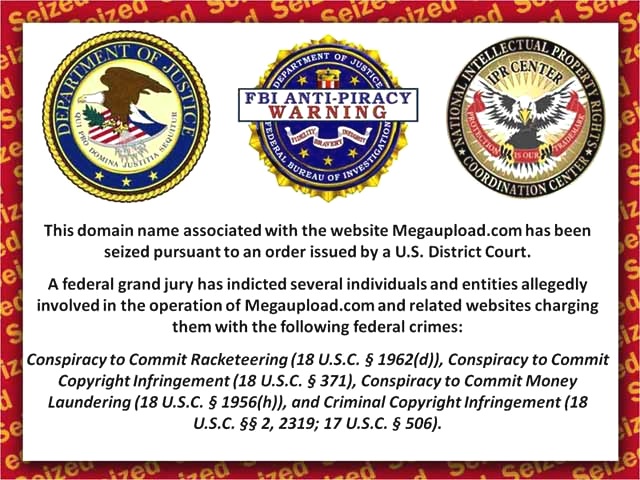2009 In Review
When people were going into the McCain Administration, they were unsure of what to expect. They certainly did not expect foreign troubles to pop up all over the place, the return of racial tensions or the econimic anxeities. Despite this, the McCain Administration soldiered on, even if they were not able to pass much of their agenda. While McCain did swing more to the center on certain issues and intelligent enough to not touch certain hot buttons (he was an environmentalist conservative and decided to avoid touching anything of Planned Parenthood), the political factions that were fighting were still seen clearly within both parties and beyond. The foreign troubles did cause for some proposals to increase the military budget, even after the debacle of the various audits of the Pentagon though McCain was successful in increasing funding in military cybersecurity. Additionally, some of the standards in some department were modestly adjusted, likely done to try and not cause too much trouble over on the home front with the people. McCain maintained a focused on troubles abroad; he wanted to utilize Gore increasing the US's prestige to try and justify going in ad resolving economic problems in nations. Support has been mixed for this though the troubles have caused people to consider it may needed. A notable example being Honduras and as talks for new elections fell through, the task of dealing with the intertim government became a discussion. Talks with the OAS regarding a military intervention to restore Zelaya though the details remained in discussion, especially regarding Venezuela leading and possibly even getting Cuba involved.
The economy became the main concern with the autumn seeing the housing bubble burst and the people suddenly entering a state of panic over it along with companies though some hopes remained there. However, it did lead to more talks internationally in concerns over the global economy and the potential problems it could have. Additionally, the speculations over a recession meant that some people were bunkering down. Others meanwhile focused on working to maintain their jobs gained in the few couple of years thanks to the improved Gore economy. Despite the optimism of the Americans, the atmosphere of anxiety and tension remained in the air. Environmentalist messages remained after Gore's departure, even if they are being overshadowed by the concerns of the economy and military risings. At the same time though, this has been leading to a merging of environmentalists and with labour unions and other economics as there was the growing thought that the current economic model and consumerist mindset was a problem tied to it. Meanwhile, some of the more conservative folks, initially relieved that McCain got into power, began growing a little disenheartened by the results, but tried to remain firm. There was a sense in the air that something big was coming.
Pop culture continued on from where last year left off. The aim toward more action-oriented or at least more serious story-telling in adult animation meant that focuses shifted a bit and more chances were taken on different films. Dreamworks' adaptation of of the urban fantasy novel Gil's All-Fright Diner became a cult classic and signaled a bit of a turn for Dreamworks. Disney meanwhile fared well with Princess and the Frog though not enough, concerning them if they could stay in with traditional animation or if they should begin switching to CGI. The topic had come up and after the procedures with Pixar went nowhere outside of Disney continuing to distribute them, Disney did begin funding programs to help get CGI animators to come in. Pixar's Up did quite well in comparison. Harry Potter and the Half-Blood Prince also faired well with a surprise hit being G.I. Joe: Rise of COBRA by Micheal Bay. After rejecting to direct the proposed Transformers film and its subsequent shelving, Micheal Bay was invited to do G.I. Joe, being more up his alley and of course, given support from the military. The plot revolved around the reveal of the secret team known as the G.I. Joes, a top secret American-based team of commandos and their subsequent encounter with the organization known as COBRA, the Counterintelligence Operations Battalion of Regenade Agents, a terrorist organization of mercenaries, spies and assassins who's purpose is destablizing nations for the purpose of global hegemony through shadow governments. However, perhaps nothing was as expected as the large-scale work that was Avatar. Known for pushing the CGI to the limits and the 3D spectacle, it did push into call the idea of 3D graphics though it was still pretty nebulous. Television meanwhile would see the rise of many popular shwos such as Glee, Parks & Recreation and Community. Notably one was Archer, an animated parody of spy films and tropes, it began restoring some faith in Western adult animation in comedy, competiting against Futurama and South Park. However, the big news in media was Disney purchasing Marvel early in the year as Marvel wished to secure their future endeavors after the shaky ground in the restructuring of their continuity. However, this leave questions regarding the remaining film and television rights scattered across non-Marvel properties. While Disney was in no rush to obtain the X-Men film rights due to Marvel's decision to seperate them from the main Marvel comic focus, they did focus on obtaining Fantastic Four and Spider-Man. Iron Man's success and the lackluster results of Incredible Hulk led to some debate on the future of comic book heroes, at least with Marvel. However, the production chaos and subsequent cancellation of Spider-Man 3 along with leaked scripts and further Sony financial problems forced them to the negotiating table. Disney would purchase the full Spider-Man and associated characters film rights and television rights as the new owner of Marvel though Sony would get in exchange exclusivity for Spider-Man video games appearing on Playstation consoles (though Spidey could still appear in non-console exclusive games where he was not the main focus.) After months of debate, it has been confirmed that Spectacular Spider-Man would continue and be confirmed for a third and fourth season. Additionally, Disney secured the film rights to Fantastic 4 back from 21st Century Fox after the disappointment of Rise of the Silver Surfer.
Speaking of video games, many new popular games have been released this year. Batman: Arkham Asylum, Call of Duty: Modern Warfare II and New Super Mario Bros Wii were all massive big hits to get this year. The Xbox and SEGA then released a new exclusive IP with Bayonetta while Nintendo surprised eveyrone with an exclusive like Madworld. The release date of the two led to jokes of the two characters dating on social media, which the companied noted with humor. Rare established some more games for the Nintendo Wii such as The Fast and the Furriest, a crazy cart-building game that goes through challenges (think Banjo-Kazooie Nuts and Bolts meets Diddy Kong Racing) or Other games such as Brutal Legends, Mario and Luigi: Bowser's Inside Story, and many others have been getting intense attention and the Wii racing neck and neck against the Xbox 360 while the Playstation 3 struggled along. Despite the competition, the two companies remained on amicable terms, likely due to how Nintendo assisted Microsoft with the Xbox. The companies tended to have talks in regards and rumors circulated one of those talks led to discussions in regarding the potential successor to the Nintendo DS. According to rumor, Nintendo had considered trying for 3D graphics much like the attempt with the Virtual Boy years prior, but Microsoft convinced them otherwise not just because of the limitations, but the lack of real popularity for it, noting that 3-D graphics were viewed as short-lasting though the talks ov virtual reality did remain. Furthermore, online games were becoming big with League of Legends and revolutionary game known as Minecraft was released for people to try and change out. The online world was also changing. Project MAY would be entering negotiations, though it appeared that most of the core contract stuff would continue, though some say a new partner would join in OpenFilm, a website devoted for the finding and distributing of independent films, allowing for more potential than what could be done just on Youtube. More and more people were looking to try and make money online by showcasing their talents and creativity. Other websites looked for venues or ways of advertisements though many were wary of going through such venues. Social media was becoming a bigger part of people's lives, especially as smart phones were becoming more available. Interestingly enough, this also led to a growing group of misfits: people who liked repairing their own devices, environmentalists and so on who showed concern in the effect that new technologies would have on the environment. In music, many would claim it was the end of the mainstream dominance of pop punk, noted with the death of Micheal Jackson and the beginning of the Great Recession, providing a new feeling of anxiety and anger for musicians and other artists to draw upon in the oncoming months.
When people were going into the McCain Administration, they were unsure of what to expect. They certainly did not expect foreign troubles to pop up all over the place, the return of racial tensions or the econimic anxeities. Despite this, the McCain Administration soldiered on, even if they were not able to pass much of their agenda. While McCain did swing more to the center on certain issues and intelligent enough to not touch certain hot buttons (he was an environmentalist conservative and decided to avoid touching anything of Planned Parenthood), the political factions that were fighting were still seen clearly within both parties and beyond. The foreign troubles did cause for some proposals to increase the military budget, even after the debacle of the various audits of the Pentagon though McCain was successful in increasing funding in military cybersecurity. Additionally, some of the standards in some department were modestly adjusted, likely done to try and not cause too much trouble over on the home front with the people. McCain maintained a focused on troubles abroad; he wanted to utilize Gore increasing the US's prestige to try and justify going in ad resolving economic problems in nations. Support has been mixed for this though the troubles have caused people to consider it may needed. A notable example being Honduras and as talks for new elections fell through, the task of dealing with the intertim government became a discussion. Talks with the OAS regarding a military intervention to restore Zelaya though the details remained in discussion, especially regarding Venezuela leading and possibly even getting Cuba involved.
The economy became the main concern with the autumn seeing the housing bubble burst and the people suddenly entering a state of panic over it along with companies though some hopes remained there. However, it did lead to more talks internationally in concerns over the global economy and the potential problems it could have. Additionally, the speculations over a recession meant that some people were bunkering down. Others meanwhile focused on working to maintain their jobs gained in the few couple of years thanks to the improved Gore economy. Despite the optimism of the Americans, the atmosphere of anxiety and tension remained in the air. Environmentalist messages remained after Gore's departure, even if they are being overshadowed by the concerns of the economy and military risings. At the same time though, this has been leading to a merging of environmentalists and with labour unions and other economics as there was the growing thought that the current economic model and consumerist mindset was a problem tied to it. Meanwhile, some of the more conservative folks, initially relieved that McCain got into power, began growing a little disenheartened by the results, but tried to remain firm. There was a sense in the air that something big was coming.
Pop culture continued on from where last year left off. The aim toward more action-oriented or at least more serious story-telling in adult animation meant that focuses shifted a bit and more chances were taken on different films. Dreamworks' adaptation of of the urban fantasy novel Gil's All-Fright Diner became a cult classic and signaled a bit of a turn for Dreamworks. Disney meanwhile fared well with Princess and the Frog though not enough, concerning them if they could stay in with traditional animation or if they should begin switching to CGI. The topic had come up and after the procedures with Pixar went nowhere outside of Disney continuing to distribute them, Disney did begin funding programs to help get CGI animators to come in. Pixar's Up did quite well in comparison. Harry Potter and the Half-Blood Prince also faired well with a surprise hit being G.I. Joe: Rise of COBRA by Micheal Bay. After rejecting to direct the proposed Transformers film and its subsequent shelving, Micheal Bay was invited to do G.I. Joe, being more up his alley and of course, given support from the military. The plot revolved around the reveal of the secret team known as the G.I. Joes, a top secret American-based team of commandos and their subsequent encounter with the organization known as COBRA, the Counterintelligence Operations Battalion of Regenade Agents, a terrorist organization of mercenaries, spies and assassins who's purpose is destablizing nations for the purpose of global hegemony through shadow governments. However, perhaps nothing was as expected as the large-scale work that was Avatar. Known for pushing the CGI to the limits and the 3D spectacle, it did push into call the idea of 3D graphics though it was still pretty nebulous. Television meanwhile would see the rise of many popular shwos such as Glee, Parks & Recreation and Community. Notably one was Archer, an animated parody of spy films and tropes, it began restoring some faith in Western adult animation in comedy, competiting against Futurama and South Park. However, the big news in media was Disney purchasing Marvel early in the year as Marvel wished to secure their future endeavors after the shaky ground in the restructuring of their continuity. However, this leave questions regarding the remaining film and television rights scattered across non-Marvel properties. While Disney was in no rush to obtain the X-Men film rights due to Marvel's decision to seperate them from the main Marvel comic focus, they did focus on obtaining Fantastic Four and Spider-Man. Iron Man's success and the lackluster results of Incredible Hulk led to some debate on the future of comic book heroes, at least with Marvel. However, the production chaos and subsequent cancellation of Spider-Man 3 along with leaked scripts and further Sony financial problems forced them to the negotiating table. Disney would purchase the full Spider-Man and associated characters film rights and television rights as the new owner of Marvel though Sony would get in exchange exclusivity for Spider-Man video games appearing on Playstation consoles (though Spidey could still appear in non-console exclusive games where he was not the main focus.) After months of debate, it has been confirmed that Spectacular Spider-Man would continue and be confirmed for a third and fourth season. Additionally, Disney secured the film rights to Fantastic 4 back from 21st Century Fox after the disappointment of Rise of the Silver Surfer.
Speaking of video games, many new popular games have been released this year. Batman: Arkham Asylum, Call of Duty: Modern Warfare II and New Super Mario Bros Wii were all massive big hits to get this year. The Xbox and SEGA then released a new exclusive IP with Bayonetta while Nintendo surprised eveyrone with an exclusive like Madworld. The release date of the two led to jokes of the two characters dating on social media, which the companied noted with humor. Rare established some more games for the Nintendo Wii such as The Fast and the Furriest, a crazy cart-building game that goes through challenges (think Banjo-Kazooie Nuts and Bolts meets Diddy Kong Racing) or Other games such as Brutal Legends, Mario and Luigi: Bowser's Inside Story, and many others have been getting intense attention and the Wii racing neck and neck against the Xbox 360 while the Playstation 3 struggled along. Despite the competition, the two companies remained on amicable terms, likely due to how Nintendo assisted Microsoft with the Xbox. The companies tended to have talks in regards and rumors circulated one of those talks led to discussions in regarding the potential successor to the Nintendo DS. According to rumor, Nintendo had considered trying for 3D graphics much like the attempt with the Virtual Boy years prior, but Microsoft convinced them otherwise not just because of the limitations, but the lack of real popularity for it, noting that 3-D graphics were viewed as short-lasting though the talks ov virtual reality did remain. Furthermore, online games were becoming big with League of Legends and revolutionary game known as Minecraft was released for people to try and change out. The online world was also changing. Project MAY would be entering negotiations, though it appeared that most of the core contract stuff would continue, though some say a new partner would join in OpenFilm, a website devoted for the finding and distributing of independent films, allowing for more potential than what could be done just on Youtube. More and more people were looking to try and make money online by showcasing their talents and creativity. Other websites looked for venues or ways of advertisements though many were wary of going through such venues. Social media was becoming a bigger part of people's lives, especially as smart phones were becoming more available. Interestingly enough, this also led to a growing group of misfits: people who liked repairing their own devices, environmentalists and so on who showed concern in the effect that new technologies would have on the environment. In music, many would claim it was the end of the mainstream dominance of pop punk, noted with the death of Micheal Jackson and the beginning of the Great Recession, providing a new feeling of anxiety and anger for musicians and other artists to draw upon in the oncoming months.
Last edited:
